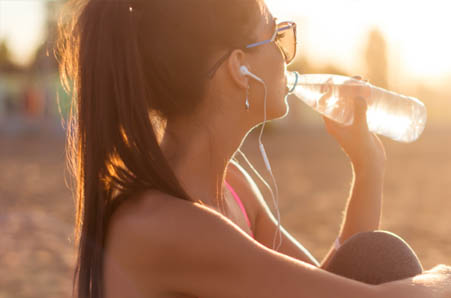Summer brings its own set of health challenges, from heat-related illnesses to infections common in warm weather. Explore the guide below to learn about summer diseases and effective prevention strategies:
Heat-Related Illnesses
Heat Exhaustion
- Symptoms: Heavy sweating, weakness, dizziness, nausea, headache.
- Prevention: Stay hydrated, avoid strenuous activity during peak sun hours, wear lightweight clothing.
Heat Stroke
- Symptoms: High body temperature (above 104°F/40°C), confusion, rapid pulse, loss of consciousness.
- Prevention: Stay cool with shade or air-conditioned spaces, drink plenty of fluids, recognize early signs.
Vector-Borne Diseases
Mosquito-Borne Diseases
- Examples: Zika virus, West Nile virus, Dengue fever.
- Prevention: Use insect repellent, wear long-sleeved clothing, eliminate standing water around homes.
Tick-Borne Diseases
- Examples: Lyme disease, Rocky Mountain spotted fever.
- Prevention: Use tick repellent, wear protective clothing in wooded areas, check for ticks after outdoor activities.
Waterborne Illnesses
Recreational Water Illnesses
- Examples: Cryptosporidiosis, Giardiasis.
- Prevention: Avoid swallowing pool water, shower before swimming, ensure pools are properly chlorinated.
Foodborne Illnesses
- Examples: Salmonella, E. coli infections.
- Prevention: Practice proper food hygiene, cook foods to safe temperatures, refrigerate leftovers promptly.
Skin Conditions
Sunburn
- Prevention: Use sunscreen with SPF 30 or higher, reapply every 2 hours, seek shade during peak sun hours.
Heat Rash
- Prevention: Wear loose, lightweight clothing, stay in cool, dry areas.
Respiratory Infections
Seasonal Allergies
- Symptoms: Sneezing, itchy eyes, congestion.
- Prevention: Limit outdoor activities during high pollen counts, use allergy medications as prescribed.
Respiratory Viruses
- Examples: Common cold, influenza.
- Prevention: Wash hands frequently, avoid close contact with sick individuals, get vaccinated against flu.
General Prevention Tips
- Stay Hydrated: Drink plenty of water throughout the day.
- Protective Clothing: Wear hats, sunglasses, and long sleeves when outdoors.
- Insect Control: Use insect repellent and mosquito nets.
- Hygiene Practices: Wash hands frequently, especially before eating and after using the restroom.
Summary Table
| Disease Category | Common Examples | Prevention Strategies |
|---|---|---|
| Heat-Related Illnesses | Heat exhaustion, heat stroke | Stay hydrated, avoid prolonged sun exposure, recognize symptoms early. |
| Vector-Borne Diseases | Mosquito-borne (Zika, West Nile), Tick-borne (Lyme disease) | Use repellents, wear protective clothing, eliminate breeding grounds. |
| Waterborne Illnesses | Cryptosporidiosis, Salmonella | Practice safe swimming, proper food handling, and hygiene. |
| Skin Conditions | Sunburn, heat rash | Use sunscreen, wear appropriate clothing, seek shade. |
| Respiratory Infections | Seasonal allergies, common cold, influenza | Avoid triggers, practice good hygiene, get vaccinated. |
FAQ
How can I prevent heat-related illnesses?
Stay hydrated, avoid strenuous activities during peak heat hours, and wear lightweight, breathable clothing. Seek shade or air-conditioned spaces when necessary.
What should I do if I suspect I have a mosquito-borne illness?
Consult a healthcare provider if you develop symptoms like fever, rash, or joint pain after potential mosquito exposure. Use insect repellent and protective clothing to prevent bites.
Is it safe to swim in natural bodies of water during summer?
Swimming in untreated or poorly maintained water bodies can increase the risk of waterborne illnesses. Choose designated swimming areas and practice good hygiene.
How effective are vaccines against seasonal illnesses like influenza?
Vaccines are highly effective in reducing the risk of influenza and its complications. Get vaccinated annually before flu season begins to protect yourself and others.
What should I do if I get sunburned?
Treat sunburn with cool baths or compresses, moisturize the skin, and take pain relievers if needed. Avoid further sun exposure until the skin heals.

